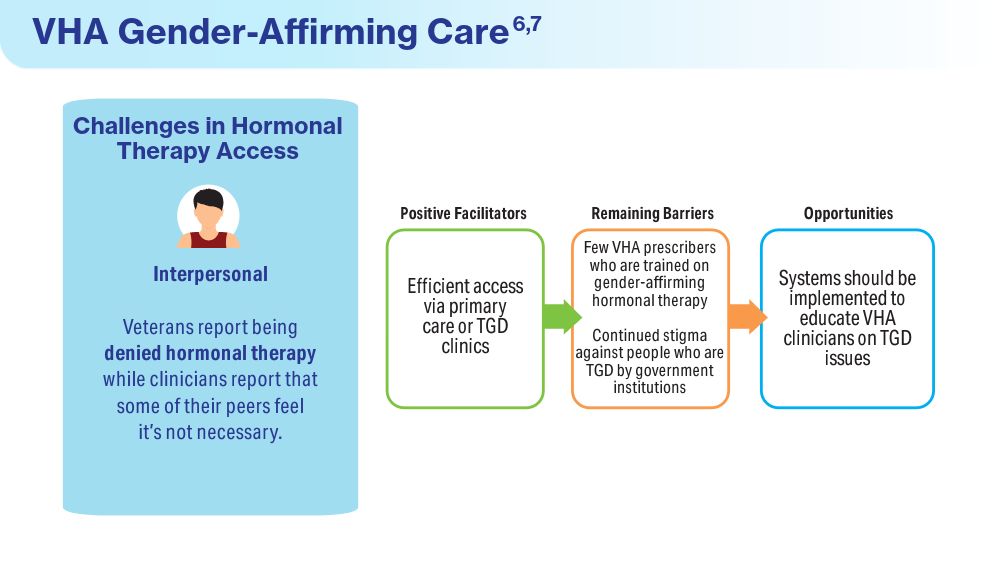Click to view more from Federal Health Care Data Trends 2024.
Data Trends 2024: Transgender and Gender-Diverse Care
Reviewed by:
Sarah Meadows, PhD
RAND Corporation
Santa Monica, CA
Dr. Meadows has no relevant financial relationships to disclose.

1
-
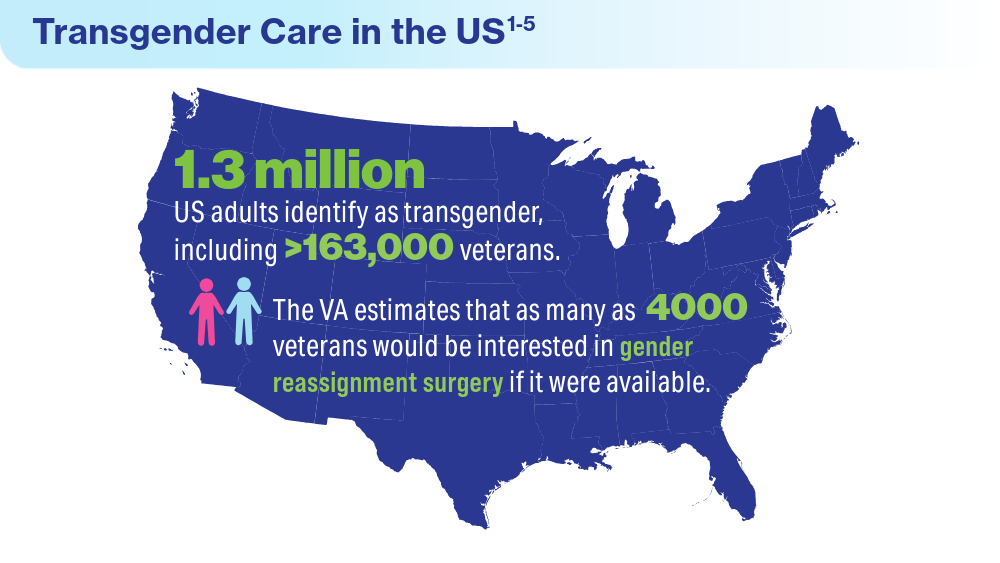
The military and VHA have recently undergone significant changes for individuals who are transgender and gender-diverse (TGD). Previously subjected to exclusion, they now have access to VHA care, gender-affirming treatments, and mental health services. However, the VA recently delayed plans to offer gender confirmation surgeries.1-5
-

A study of nearly 5000 veterans aged ≥ 65 years who received VHA care found that veterans who are TGD had significantly higher rates of depression, cancer (the most significant difference being prostate, 9.6% vs 3.8%), Alzheimer disease, and social stressors compared with their cisgender peers. However, the 2 groups had similar rates for other conditions including diabetes, atherosclerosis, venous thromboembolism, PTSD, HIV, and rheumatoid arthritis.
-
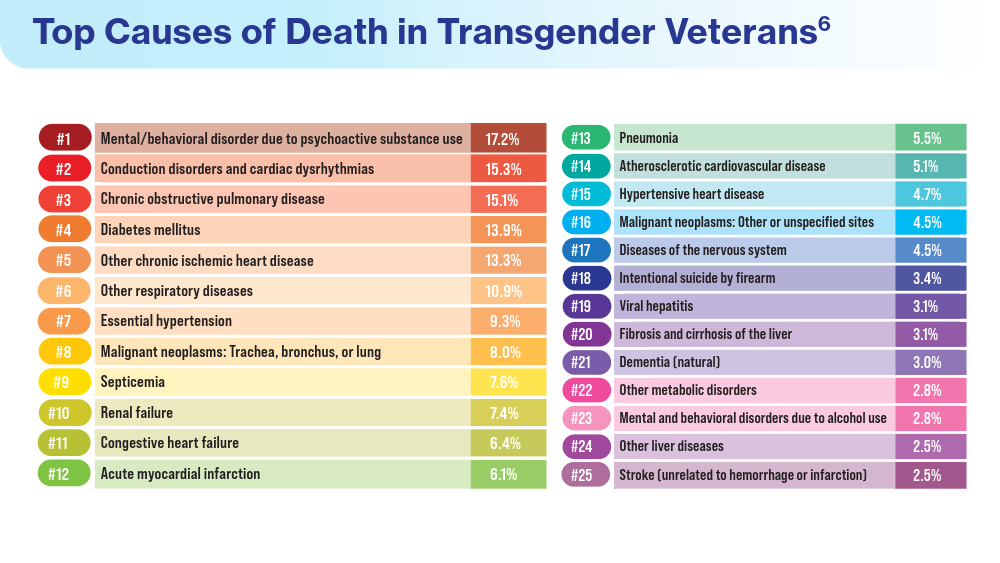
Understanding the primary causes of death in veterans who are transgender can inform resource allocation, policy development, and research efforts. Tailored interventions may enhance health care access and quality or promote community support. Clinician education on these issues is essential to improving health outcomes and reducing mortality disparities for these individuals in this population.
-
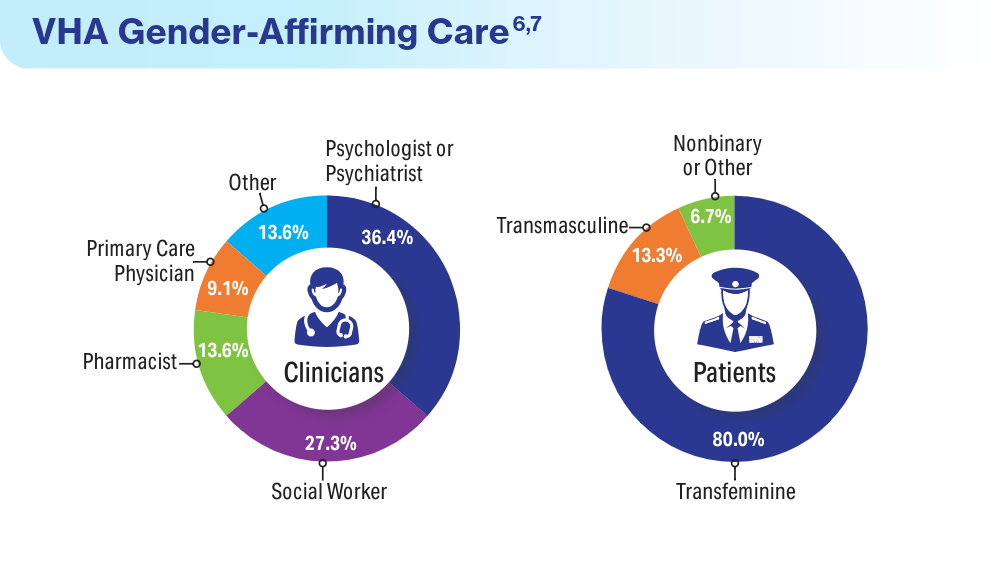
VHA clinicians and veterans who are TGD were interviewed regarding the challenges they experience with prescribing or receiving gender-affirming hormone therapy.
-
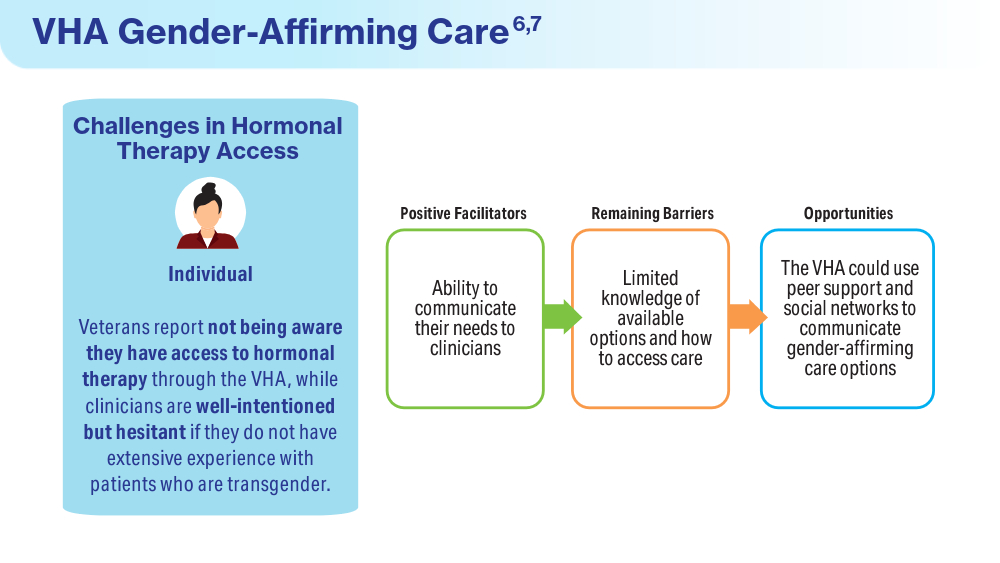
-
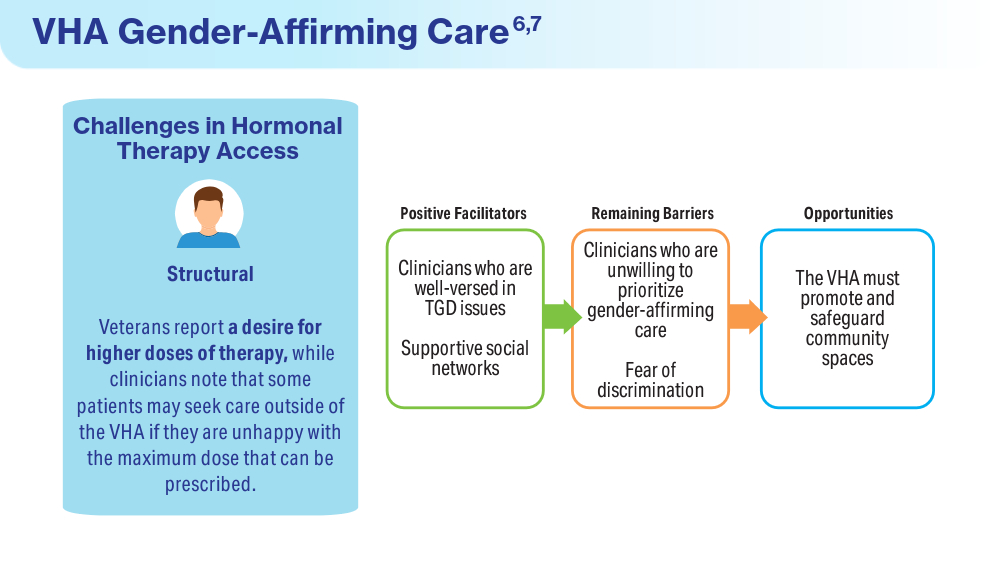
-
